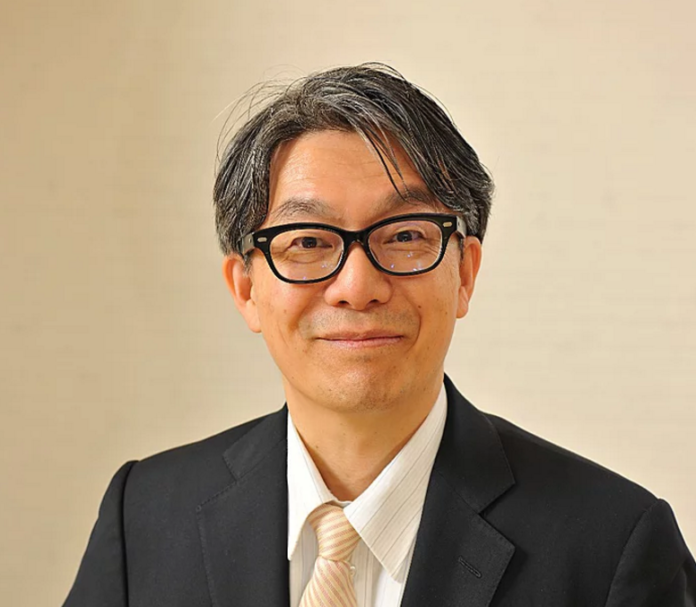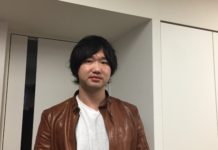Education is big business in Japan. Ranging from giants such as Benesse and Kumon to the various tutoring businesses aka “cram schools” that align the streets in Japan, companies compete to educate your child. However, how effective are they in bringing results? In the case of Surala, the cloud based e-learning system uses big data and machine learning technology to analyze and adapt to individual student strengths and weaknesses, creating a tailored tutoring solution that brings actual results. Case studies of overall student grades improving not only in Japan, but in other countries where the solution is implemented, clearly show that Surala is on to something very big.
I met with Surala CEO, Takehiko Yunokawa, to discuss his solution.
– Please tell us about your company.
We run on a B to B to C subscription based model, providing e-learning solutions to schools and tutoring schools throughout Japan. The lessons are adaptive to individual skill level, so we are able to provide a customized learning experience for each student. For example, in one of the schools, we have 200 students following the same interactive lesson via their computer; the teacher has a tablet to track the progress of each student and the class as a whole. In partnership with NTT Docomo and released in May 2016, we created an AI bot in the form of a character that helps students progress in their learning.
Unlike the traditional tutoring schools throughout Japan in which students are usually crammed into a small room, the tutoring schools we provide are modeled like living rooms where students can connect their laptops via wifi, providing them with a comfortable learning environment. We have about 600 tutoring schools nationwide.
We have had the honor receiving a number of awards, such as the Minister’s Award at the Japan E-learning Awards and most recent in 2016 at the Japan Venture Awards, recognized for solving social issues with our service.
– Please tell us about your background.
I used to work for firm called Venture Link as an Executive in charge of creating new businesses. Some of the businesses we invested in were restaurants, delivery services, and fitness clubs. I had an opportunity to be involved in supporting a private tutoring school chain, which was originally setup as a franchise, but ended up being ran by Venture Link. Though we were successful in obtaining student signups for our business, we were not successful raising grades of the students overall. After analysis, we determined the problem lied within the nature of the private tutoring business category, rather than the operation itself, and thought that we could solve this problem through e-learning. The CEO at the time gave me the blessing to run with my idea, started planning in 2005, and released our junior high material in 2007. After a series of events with the company, I decided to buy the rights to the business I created and started Surala.
– How do your business differ from our e-learning services?
Our program covers elementary, from grade 4, up to high school and focuses on three subjects: Japanese, English, and Mathematics.
Previous e-learning solutions feature famous, charismatic teachers, and are designed for students who have already previous knowledge of a particular subject studied through a traditional school program. However, our solution covers the entire spectrum, from students starting with a zero knowledge base to advanced students. With this in mind, we do not have any competitors at this stage.
Gamification is embedded into our e-learning programs, where students learn through interactive lessons and animations that appear on the screen. The system adapts the lessons based on the student’s progress and knowledge; for example, if the student gives the wrong answer to a certain problem, the system adjusts automatically to give easier problems. On the flipside, students are challenged with harder material if the problems are too easy; like a game, students are less likely to retain interest if the material is too easy or too hard. On top of that, we have also patented a feature that analyzes student mistakes and finds the root cause of why they stumbled on a given problem.
We have been in involved in various CSR efforts from the beginning. For example, we provided learning support to students in Sendai affected by the Tohoku earthquake and tsunami through our NPO. While some e-learning programs require professional tutors to support students, our program is designed in such a way that even non-professionals who have an interest in the subject, such as senior citizens or housewives, can provide ample support to students taking the course. The word has spread around and currently have more than 30 locations that have implemented this support model. Through this, we have been to provide e-learning to areas that were originally unreachable.
– What countries are you looking to expand to?
Actually, we have expanded operations to developing areas in Sri Lanka, Indonesia, and India through our NPO.
In collaboration with JICA and Women’s Bank, we started our first school in May 2015 in Columbo, Sri Lanka, but now have 13 schools in operation, due to the positive reception we have received. The women who are hired as “coaches” to support the students at the school are not professional teachers, but people who live in the community. We kill two birds with one stone, solving the employment issues in these communities by providing work to women, while providing education to underprivileged students. Material content is provided in the native language of the countries we operate in, and so far have received positive feedback from the children enrolled in the programs. Students grades overall have improved significantly.
In Indonesia, we have partnered with Indonesia University of Education to implement our solution in their elementary schools. In India, we have just started out.
– How did you deal with funding for your startup?
I originally bought the rights to the business from Venture Link and started Surala, but after soon after received funding from a large Japanese VC.
– What types of investors or companies would you like to partner up with in the future?
We currently only have 30 employees so we are a little stretched out to cover 3 countries out of Japan at the moment. However there has been some interest in our solution in countries like Vietnam, so if we were able to find a local partners to help us on the ground, we wouldn’t be closed to the idea of expanding into other countries. From the positive results we have received in the three countries, I would imagine our solution being successful in any country.
Though we are working towards an IPO, we are in no rush for new funding. Of course, if we do IPO, we would be interested in receiving investment from companies that could synergize with our business.
– What is your daily schedule like?
Looking at the longer span, I usually have business trips abroad once a month, visiting schools in the three countries, also meeting with representatives from Women’s Bank. In Japan, I usual spend time visiting current clients. I also participate as a panelist in events such as G1 Venture Summit and events with JICA.
– What apps do you use often use?
When I go abroad, I use Uber a lot. In countries like Sri Lanka or Indonesia, you can’t hail taxis off the street—you need to call the taxi company to make a reservation. Sometime taxi drivers don’t speak English, so Uber makes it really easy since you can input your destination on the app without having to directly communicate with the driver. I also use Maps.me, an offline navi app, and Facebook messenger a lot.
– Do you have any favorite hangout spots?
I don’t have a place I always go to, but I recommend wine bar in Kanda called G Drop. You can try all kinds of wine by the glass.
– Who are your main influences?
Though I don’t have any specific people in mind, I would say that working at Venture Link influenced my time management skills.
Surala’s solution is not a mere trend in e-learning, but represents a revolution in education. Their application is country borderless, with the potential to be implemented anywhere, especially to parts of the world that need stronger education programs. Though global expansion will be organic, it is undoubtable that the need for their solution exists in many countries and expect more local partners to sign on as a result to help further their humanitarian cause.


















